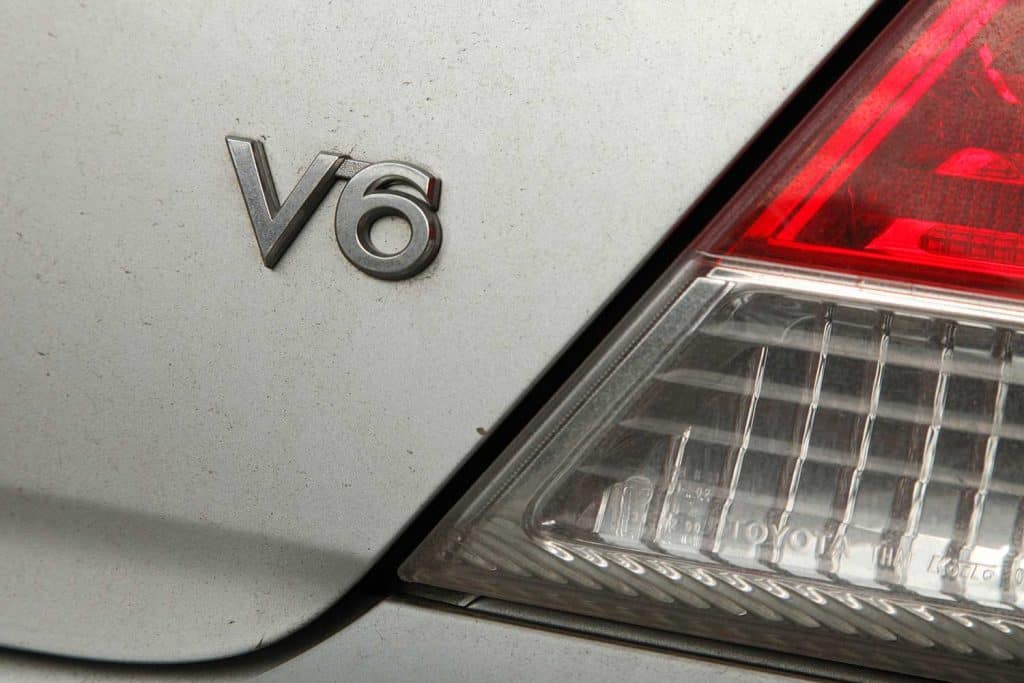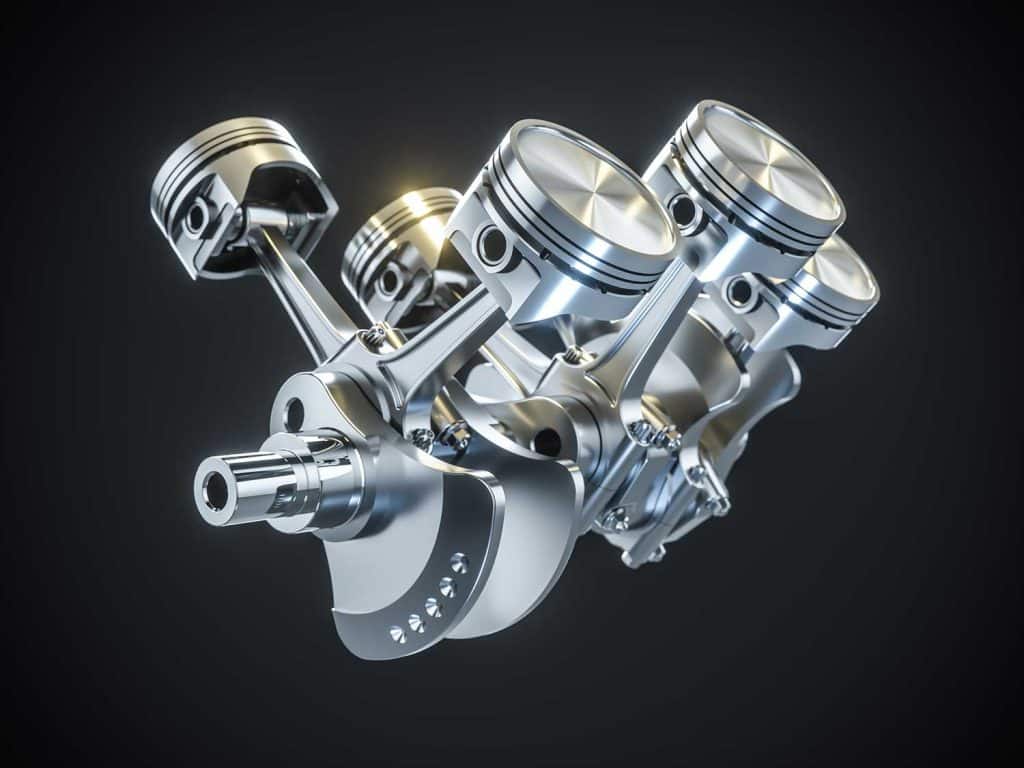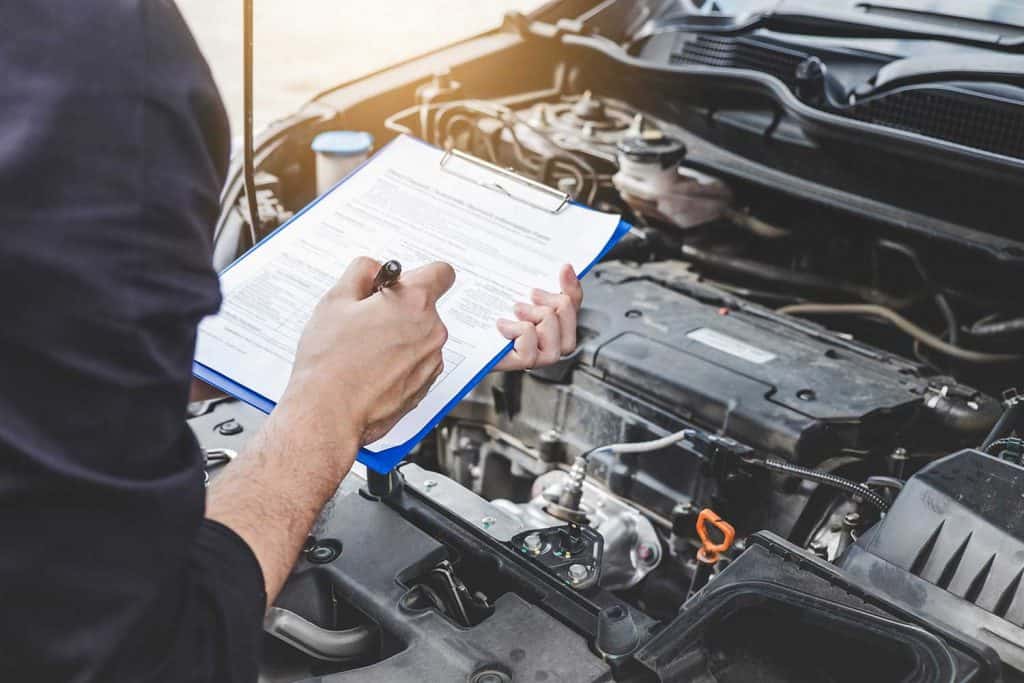The automotive industry manufactures a lot of different mechanical options for the vehicles they produce. The engine is something that certain model vehicles will give you a couple to select from. If you are considering a V6 engine for a new car or are looking to buy a used vehicle with a V6, you probably want to know more about its reliability. We researched the V6 engine from multiple professional sources, so you'll know what to expect.
The number of miles you can expect to get from a V6 engine will depend on how well you treat your vehicle and how well the engine is maintained. Generally, you should be able to get at least 150,000 miles out of any engine. The number of cylinders or how those cylinders are configured doesn't necessarily impact the lifespan.
Now that we know that a V6 engine will last at least 150,000 miles, we'll share some tips on how to get the most out of it. You might also be curious if Toyota's V6 engines are reliable, or who makes the most reliable V6 for passenger vehicles. What is the fastest V6 engine? Is it safe to buy a car with 200,000 miles? For the answers to these questions and more, read ahead in this post to see what we discovered in our research.

Tips to make your engine last longer
Nothing will last forever, but if you take proper care of your vehicle's engine, it will last a long time. Below, we've shared some key items that will help your engine reach those high mileage milestones.
Regular oil changes
Of all the things you should never skimp on, the engine oil is the big one. Engine oil keeps the moving parts of your engine well lubricated, preventing wear and overheating.
But the engine is pretty rough on oil, and it doesn't last very long. The oil in your engine needs to be regularly changed so it will be free of gunk and debris. When the old oil is drained and replaced, you should install a new oil filter as well.
How often you change your engine's oil will depend on the vehicle, the age of the engine, and the type of oil you are using. Standard motor oil will need to be changed every 3,000 to 4,000 miles, or every three months, whichever occurs first. Synthetic oil has a much longer life. It should be changed out every 5,000 to 10,000 miles.
Consult your owner's manual for the mileage interval for oil changes, as well as the recommended brand and weight you should be using. Stick with all of their recommendations, and your engine will hum for a long time.
Keep an eye on the timing chain or timing belt
Your engine will have a timing chain or a timing belt, depending upon the model vehicle you have. They serve the same purpose. They connect the crankshaft to the camshaft, controlling the intakes and the exhaust valves. This is an extremely vital component of your engine, and it should be checked at factory-recommended intervals to ensure that it is not worn or on the verge of breaking.
Should you be driving and have your timing belt slip off or your timing chain snap, it will very likely destroy your engine. The pistons and valves will smash into one another. This will damage your engine's cylinder head, valves, and other critical and expensive parts. When this happens, you'll probably have to replace the engine.
Your owner's manual will outline what mileage intervals you should check this. When your timing belt or chain reaches a certain mileage amount, you'll want to have it replaced.
Keep it cool
Too much heat is the enemy of moving parts. Your engine needs to stay under a certain temperature to keep those parts from seizing up. The gaskets and seals that prevent vital fluids from leaking out also will be impacted if they get too hot. Make sure you have a fully functional radiator and that it is always topped off with an engine coolant.
Keep an eye on the temperature gauge in your vehicle. If it starts creeping into the red zone, turn off your air conditioner and blast the heat on full until your engine cools down. If that doesn't work, pull over as soon as possible and pop open your hood until it does. Then get into the dealership to see if something is malfunctioning.
Stay with a regular maintenance plan for the entire vehicle
Parts that are outside of the engine will still have an impact on the life of the engine. It's strongly recommended that strict adherence to the maintenance schedule is a priority. As the maintenance schedule will vary from model to model, consult your owner's manual for the one created for your car.
Are Toyota V6 engines reliable?
Toyota has built a solid reputation for reliability. Higher mileage than the average is expected when you drive this make of car or truck, making it a popular option for those who want a lot of life from their vehicles.
4 Wheel Drive Guide tells us that a well-maintained Toyota V6 engine can last 300,000 miles or longer. While they have had some reports of cracked cylinder heads and faulty water pumps, those issues were fairly sporadic and not a widespread defect.

Is the 3.6 a good engine?
The 3.6 Pentastar engine has been used by Jeep, Dodge, and other automakers for quite some time. They are generally a pretty solid piece of machinery and will last upwards of 200,000 miles.
4 Wheel Drive Guide cautions that there are several things to look for if you have a 3.6 Pentastar. Some of the plastic parts fail due to defects.
The thermostat housing, water pump housing, oil filter housing, and radiator tanks all have plastic pieces in them, which some critics believe causes some parts to become defective. It's a good idea to inspect these parts when you have your vehicle serviced to see if they are on the verge of breaking.
What is the most reliable V6 engine?
Choosing the best V6 engine that is available today is a bit tricky. There are a great number of reliable vehicles that utilize this engine, and narrowing the best down to just one would be impossible.
Hot Cars shares their top eight ranked V6 engines, with some pretty familiar model vehicles on the list. They include the Honda NSX DOHC V-6, the Nissan VR38DETT, and the Ford Ecoboost V6.
The Drive shares a great story about how one Pentastar V6 engine was able to amass over 626,000 miles on it!

What is the fastest V6 engine?
Hot Cars lists the Chevrolet Camaro as being the fastest with a V6 engine. They state that "this ride pushes 355bhp, has a top speed of 155mph, and it completes the 0-60mph run in 4.9 seconds."

Is it safe to buy a car with 200k miles?
Sometimes, a new car just isn't in the budget. And that's ok because there are a lot of used cars out there that still have plenty of years left in them.
While the amount of miles isn't the only thing to consider when looking at a used car, it certainly is an important factor. But other things need to be a part of this decision. Make certain that the vehicle has been well maintained and that faulty parts are replaced.
Are there signs of leaking? Is it clean? Have it thoroughly inspected by a professional. It will be worth the fee and the time.
If you're considering a higher mileage vehicle, you'll want to have one that is a model with the reputation of lasting a long time. Honda, Toyota, and Nissan are some of the automakers who have plenty of vehicles on the road well after they have surpassed the 200,000 milestone.

In closing
V6 engines have a great reputation for power and reliability. However, they will need to be maintained and inspected on a regular basis, like any engine would. Take proper care of your V6 engine, and you'll have it powering your vehicle for many miles to come. Drive safely!
If you found this post on the V6 engine to be helpful, we believe you'll enjoy reading the following automotive posts:
How Long Do Cummins Engines Last? [Including The 5.9 & 6.7]
Evaporative Emission System (EVAP) Leak Detected: What To Do?
